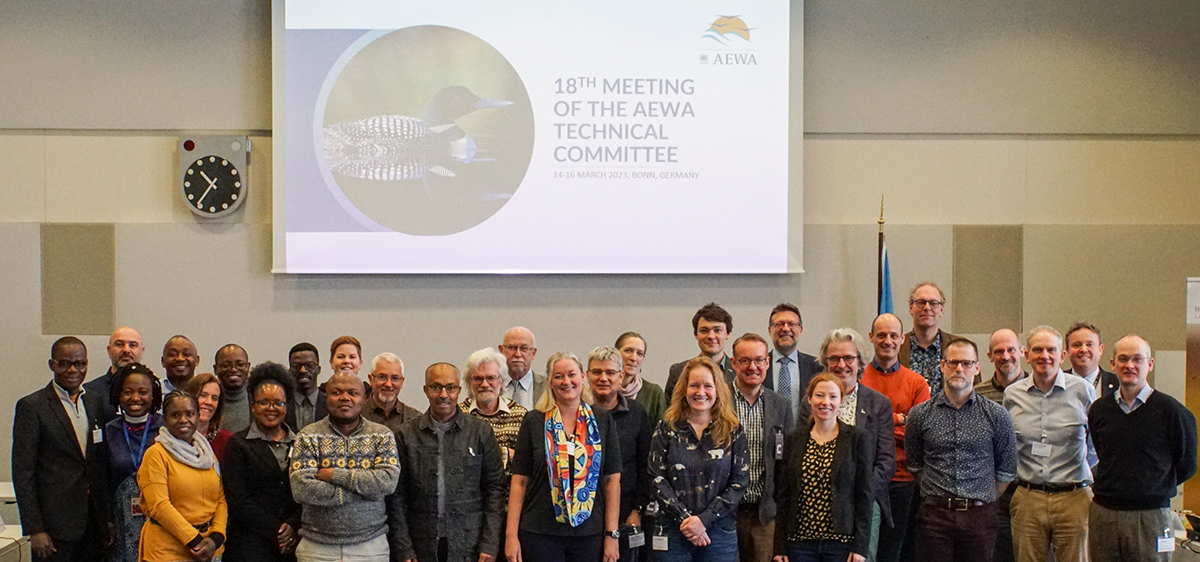
The AEWA Technical Committee (TC) is a subsidiary body to the Agreement on the Conservation of African-Eurasian Migratory Waterbirds (AEWA), which was established in accordance with Article VII of the Agreement.
The Technical Committee has the following general functions:
- It provides scientific and technical advice and information to the Meeting of the Parties and, through the Agreement Secretariat, to Parties;
- It makes recommendations to the Meeting of the Parties concerning the Action Plan, implementation of the Agreement and further research to be carried out;
- It prepares a report on its activities for each ordinary session of the Meeting of the Parties; and
- It carries out any other tasks referred to it by the Meeting of the Parties.
The Technical Committee works closely with the Standing Committee to ensure consistency across the Agreement’s work. Its operations are governed by the TC Modus Operandi adopted by the Meeting of the Parties.
Intersessionally, the TC works on the implementation of its work plan via the AEWA Technical Committee Workspace, which is a web-based, password-protected communication space and working area for the TC that provides easy access to documents, enables correspondence and discussions, as well as archiving all the work of the TC.
The Technical Committee membership comprises:
- Nine experts representing the different regions of the Agreement Area (Northern & Southwestern Europe, Central Europe, Eastern Europe, Southwestern Asia, Northern Africa, Central Africa, Western Africa, Eastern Africa and Southern Africa) elected among all the Parties of the region in question;
- One representative appointed by each of the following organizations: the International Union for Conservation of Nature (IUCN), Wetlands International, the International Council for Game and Wildlife Conservation (CIC); and
- One thematic expert from each of the following fields: rural economics, game management, environmental law, and CEPA.
Observers of non-Party Range States and the Chairperson of the AEWA Standing Committee may be invited to the meetings of the Technical Committee. A maximum of four observers from specialised international inter-governmental and non-governmental organisations may also be admitted, as well as invited experts, who may be asked to contribute to specific topics.
Other Technical Committee-related information:


